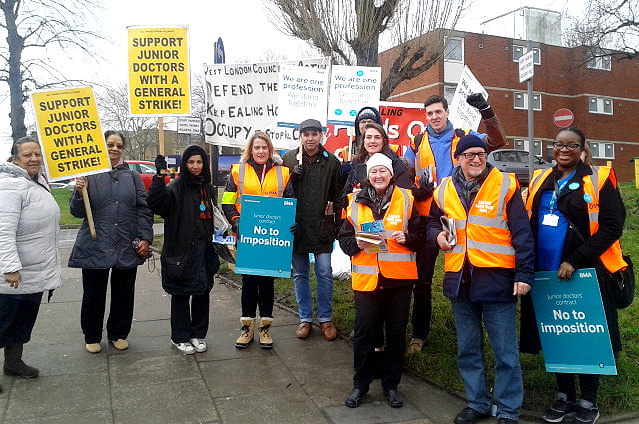
A YEAR of unparalleled pressure has left staff exhausted and on the brink, a just-released BMA survey shows.
Thousands of doctors have revealed the impact that working during the pandemic has had on their mental health and wellbeing.
New figures from the latest BMA tracker survey of doctors in England, Wales and Northern Ireland, show that almost 60 per cent (58%) of doctors are now suffering from some form of anxiety or depression, with 46 per cent saying their condition had worsened since the start of pandemic.
Meanwhile, 67 per cent of doctors say that current levels of fatigue and exhaustion are higher than normal as they tackle a mounting second wave and a growing backlog of care, on top of the usual seasonal demand.
Yesterday, in his New Year message to doctors across the UK, BMA council chair Dr Chaand Nagpaul issued a stark warning that the NHS needs more resources and staff if it is to remain fit for purpose and vaccinate the public effectively: ‘The months ahead will be as challenging, if not more so, as when the virus first peaked in April.
‘We know from our tracker surveys that over four in ten doctors’ mental health has deteriorated during the pandemic, with many exhausted from working flat out without taking adequate leave for over ten months.
‘It’s vital that the vaccination programme is delivered as fast as humanly possible, so that both health and care workers and as much of the population can be immunised to relieve our health service from the scourge of Covid-19.
‘This requires proper resourcing of staff, including GPs and primary care teams, who need to be given the space and time to vaccinate and protect the nation.’
The doctors’ union fears that the current level of strain being placed on doctors could have a lasting impact on workforce numbers in the wake of the pandemic, with 47 per cent of doctors telling the same BMA survey that they are now more likely to work fewer hours in the future.
A further 27% of doctors said they were now more likely to take early retirement and another 27 per cent are more likely to take a career break.
These further reductions to the workforce can sorely be afforded with an existing shortage of more than 8,000 consultants and the number of fully qualified GPs continuing to fall.
At a time when the NHS is facing a national health emergency, the need for more doctors has never been more important.
The BMA is also demanding that those currently working in the health service are properly protected against Covid-19 – both through vaccination and adequate PPE – so that they can continue to fight this devastating virus and keep patients safe.
Concluding his New Year message, Dr Nagpaul said that ‘We must never go back to an NHS which is under-staffed, under-resourced and under-prepared for surges in demand, let alone a pandemic.
‘It was from the ruins of the Second World War that our health service was born. From the ruins of today’s national health emergency, the UK government must seize the chance this year to rebuild the NHS anew on its founding principles of being there for all at times of need.’
Speaking about the current pressures faced by doctors and the impact this is having on colleagues, consultant of 22 years, Dr Helen Fidler said: ‘Gradually over the last 10 years things have slowly been getting more and more difficult but when the pandemic hit there was just no slack in the system at all.’